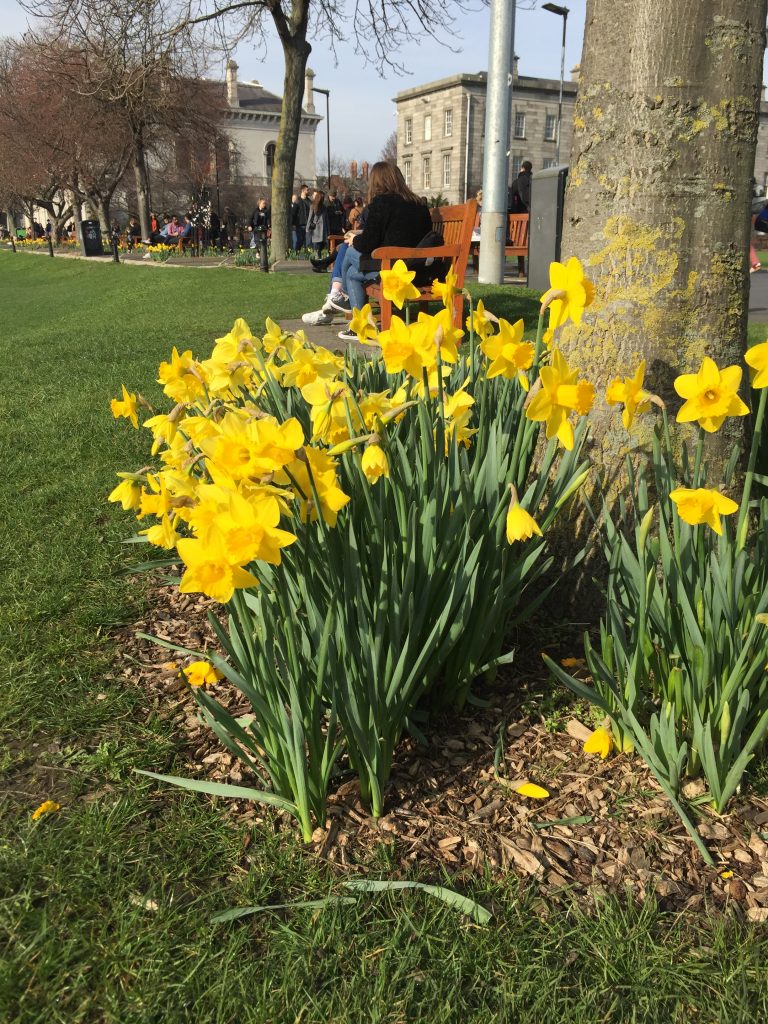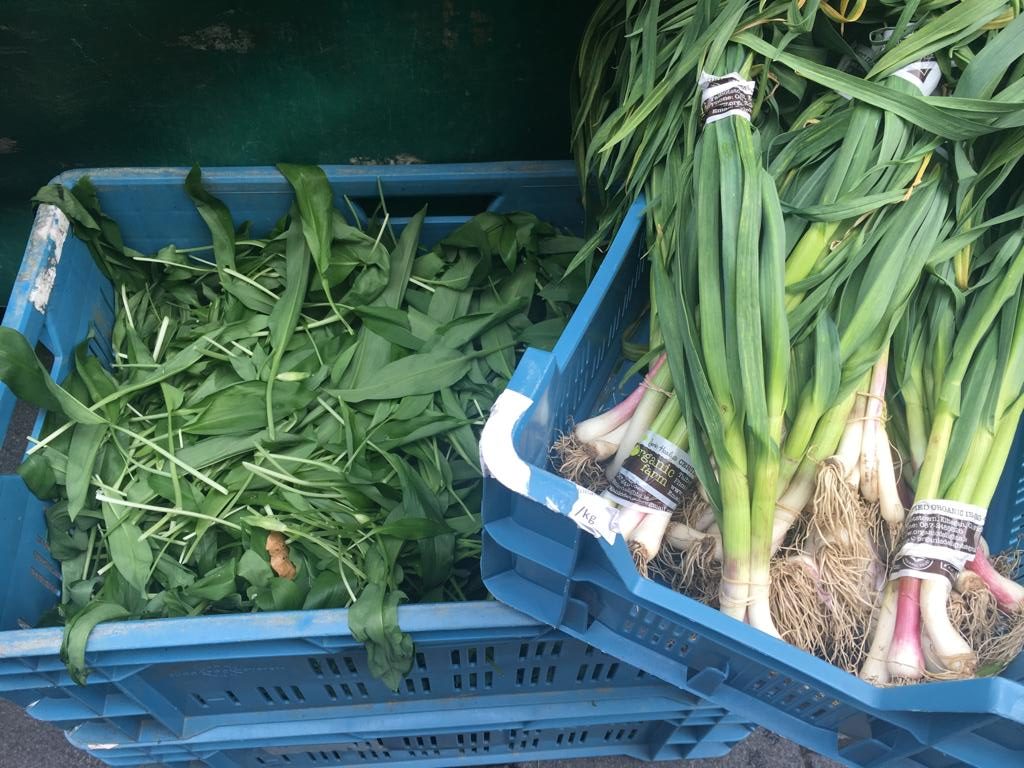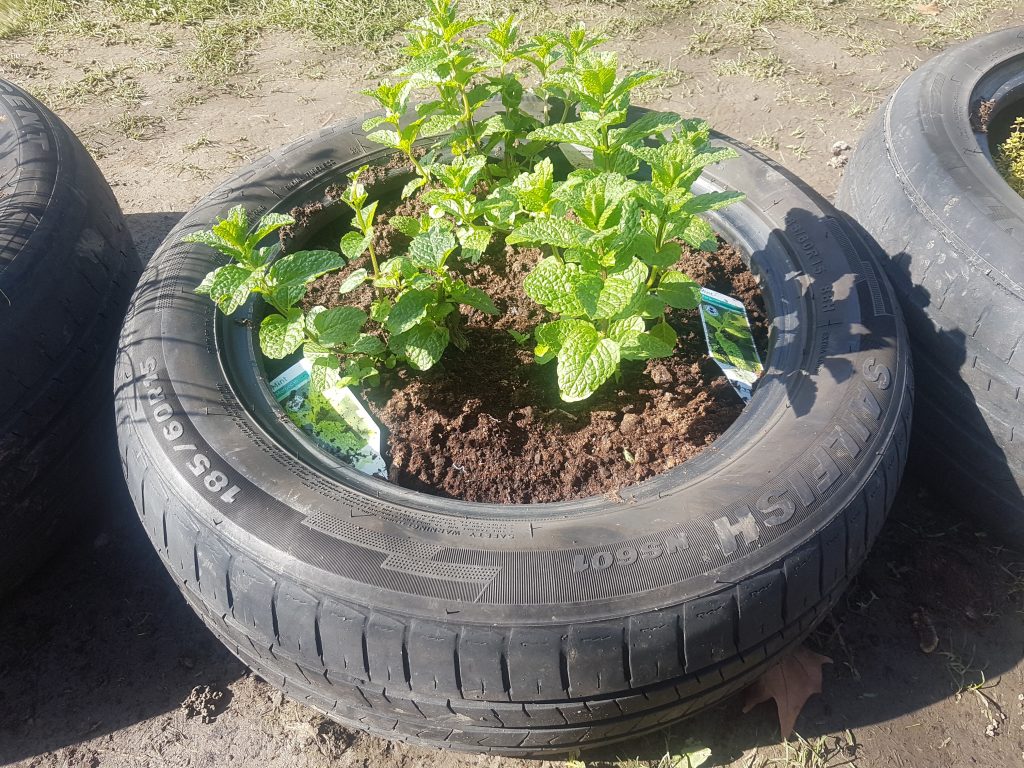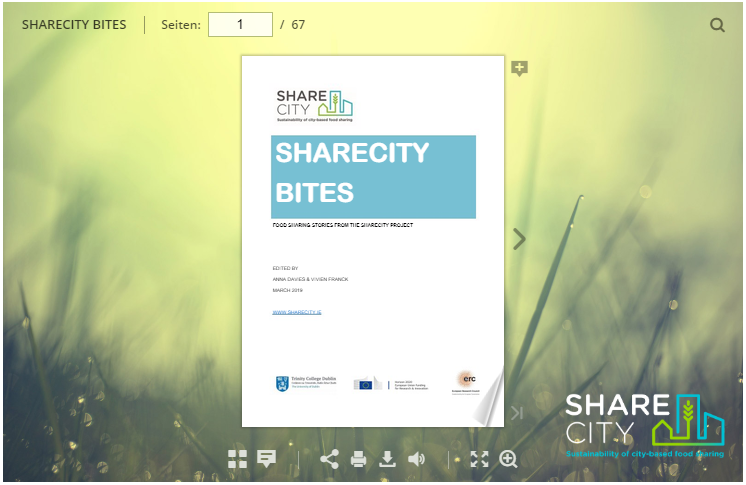Happy Spring Time from SHARECITY!
Published by SHARECITY on the 29th March 2019.
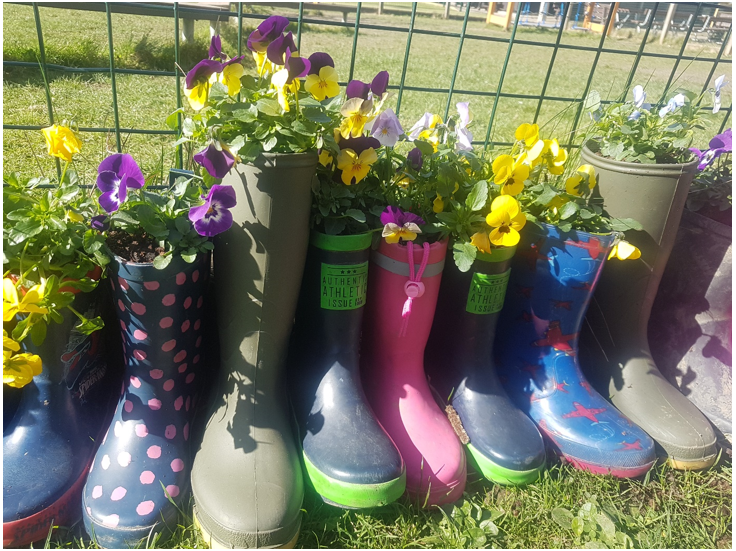
Happy Spring Time to all of our SHARECITY followers out there!
After a long winter here in Ireland, spring has finally arrived with longer days, boosted sunshine and blossoming flowers! In all of Dublin, urban fruit trees are blooming and we see many beautiful daffodils in parks and green spaces.
Over the past few weeks, a lot has been happening here at SHARECITY. We are currently in the midst of creating our online toolkit, which will be assessing the sustainability potential of food sharing practises. The tool will be named SHARE IT and we are working closely with web developers to ensure that it is ready to launch in the coming months. What’s more, we are also envisioning the future of urban food sharing by diving deeper into the governance aspects of food sharing and conducting comparative analysis of our nine case study cities. In September, we will be hosting a workshop on collective visioning with food sharing practitioners and scholars, as well as those charged with governing sharing, from all over the world. As you can see, much is going on at SHARECITY and we are already looking forward to the summer full of SHARECITY activities!
Spring busyness is of course not only limited to the project. For all of you community growers and urban foragers out there, longer days typically mark the beginning of the growing season.
In the farmer’s market in Dublin’s Temple bar we were able to get our hands on some wild garlic freshly harvested from local produce. This reminded us that the beginning of the growing season is providing a lot of opportunities for urban foraging!
Of course, urban foraging is a possibility throughout the year, but March and April the perfect months to collect wild garlic, nettle, chickweed and parsley. Recommendations for cooking with freshly foraged goods include easy nettle soup and wild garlic pesto.
Speaking of urban foraging, we also found this inspiring piece on Rob Greenfield from Orlando, Florida who made a pledge to live only on foraged goods for one year. “Food is growing all around us. It’s amazing if you simply open your eyes how much you start to see,” says Greenfield.
With urban food production starting, it is also time to get gardening again! There are many ways of preparing your garden for the growing season. March and April are a great time to redo planting boxes, containers and pots with some flowering plants. If you have your own compost for food recycling and garden waste, spring is also the best time to replace the old compost with a fresh supply. Composting guidelines can be found in this article.
To beautify the green space around you, you might want to think about DIY projects for recycling plastics like building your own bird feeder or using old car tires and rain boots as planting boxes!
If you are thinking about ways of integrating food sharing into your summer, raising edible plants in your backyard or balcony could be the way to do so. Early spring plants that grow well in window boxes and containers are herbs such as parsley, rosemary, lavender, sage and thyme. Vegetables such as tomatoes, zucchini, cucumber and bell pepper can be sown from seed on the window bench and later transferred into the garden. The earlier these plants are raised from seeds, the earlier you can expect to harvest the fruits and vegetables! More tips on how to successfully raise your plants from seeds can be found here.
When purchasing seeds at a local plant market or garden centre, make sure that you keep an eye out for local varieties to help preserve seed diversity. Planting native species helps to conserve each country’s special and often threatened plant genetic resources. It also ensures that the plants are adapted to the local environmental conditions. For Ireland, the Irish Seed Savers are a good starting point for local seed production. Many urban community gardens also offer plant and seed swaps.
If you are looking for inspiring reading material to enjoy while sitting amongst your newly planted flowers, we would like to recommend the SHARECITY bites, a ‘best of’ collection from SHARECITY’s website bogs to date. Here you will find further information on urban foraging and shared urban growing as well as blogs on our nine case study cities! We would like to thank all contributing authors for their hard work both as researchers in the field and also for their commitment to science-communication and we hope you enjoy these nuggets of sharing.
We wish you all a pleasant beginning of the growing season! If you like to stay updated on SHARECITY’s progress throughout the spring and summer, follow us on twitter, facebook and LinkedIn and please get in touch if you have any questions at sharecity@tcd.ie
The SHARECITY Team
Anna, Agnese, Stephen, and Vivien
© 2015 - 2025 ShareCity | Web Design Agency Webbiz.ie
